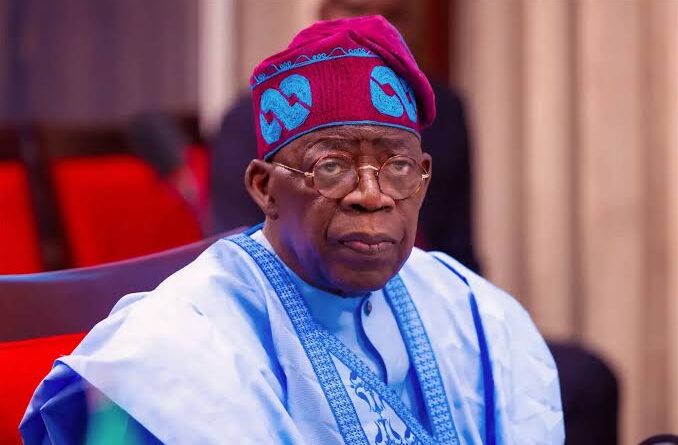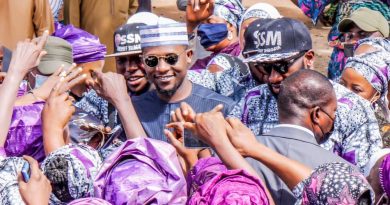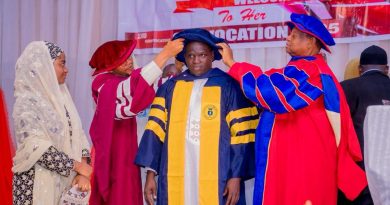LG Autonomy: Ishowo Lauds Tinubu’s Bold Move Against State Governors
LG Autonomy: Ishowo Lauds Tinubu’s Bold Move Against State Governors
By Alabidun Shuaib AbdulRahman
Kwara-based public affairs analyst, Comrade Ishowo Olanrewaju has commended President Bola Ahmed Tinubu’s administration for its efforts to enforce local government autonomy, marking a significant shift in Nigeria’s democratic landscape.
In a statement released on Thursday, Olanrewaju highlighted the collective call by President Tinubu, Attorney General of the Federation and Minister of Justice Lateef Fagbemi, SAN, and National Assembly (NASS) leaders to address the manipulation of local government councils by state governors.
INCNews247 recalls that last week, the Federal Government took a decisive step by dragging the 36 state governors before the Supreme Court, seeking enforcement of full autonomy for local governments in Nigeria.
The Federal Government has urged the Apex Court to issue an order prohibiting governors from unilaterally dissolving democratically elected local government chairmen and replacing them with caretaker committees.
READ ALSO: Hajj 2024: NAHCON Suspends Staff Allowances, Cut Others
Additionally, it seeks to channel funds meant for local governments directly to them from the Federation Account, in accordance with the Constitution, bypassing the controversial joint accounts allegedly manipulated by state governors.
According to media reports, the case is slated for hearing today, May 30. However, it remains unclear if the state governments, known for opposing local government independence, have filed their defence.
Ishowo stated, “This move by the Tinubu administration marks a decisive shift from previous approaches and shows a genuine commitment to local government autonomy, which has been undermined by political interests at the state level.
“One of the key issues the Tinubu government aims to address is the appointment of loyalists, often referred to as ‘stooges,’ to local government positions by state governors. This undemocratic trend is particularly evident in states like Kwara, where Governor Abdulrahman Abdulrazaq has been accused of prioritizing his political interests over the will of the people.
“For the past five years, Abdulrazaq has been handpicking loyalists to lead local councils, stifling the democratic process and depriving the masses of their right to choose their representatives.
“This practice erodes public trust in the electoral process and diminishes the quality of governance at the local level,” Ishowo noted. “Local governments, which are supposed to be the closest to the people and most responsive to their needs, are rendered ineffective when led by individuals who owe their allegiance to the governor rather than the electorate.”
President Tinubu’s call for genuine local government elections is seen as a commendable departure from the approach taken by his predecessor. The former administration’s lack of decisive action on local government autonomy allowed state governors to continue their manipulative practices unchecked.
Tinubu’s administration, however, is signaling a clear intent to rectify this imbalance and restore power to the people.
In a recent statement, President Tinubu emphasized the importance of local governments in promoting grassroots development and delivering essential services to citizens.
He stressed that for local governments to function effectively, they must be led by individuals who are truly representative of their communities, not mere extensions of the governor’s office.
The analyst further highlighted the role of the National Assembly in this reform. He argued that the laws governing local government elections must be amended to ensure that these elections are conducted by the Independent National Electoral Commission (INEC) rather than state electoral authorities.
“This change is crucial to eliminating the undue influence that state governors currently wield over the local election process.
“NASS leaders have a significant role to play in this regard,” Ishowo stated.
“By amending the constitution to transfer the responsibility of conducting local government elections to INEC, they can help safeguard the integrity of these elections and ensure they are free, fair, and reflective of the people’s will.”
Although Ishowo expressed some reservations about the independence of INEC but believes that allowing the national electoral body to oversee these elections would ensure a level playing field for all candidates and restore public confidence in the electoral process.




